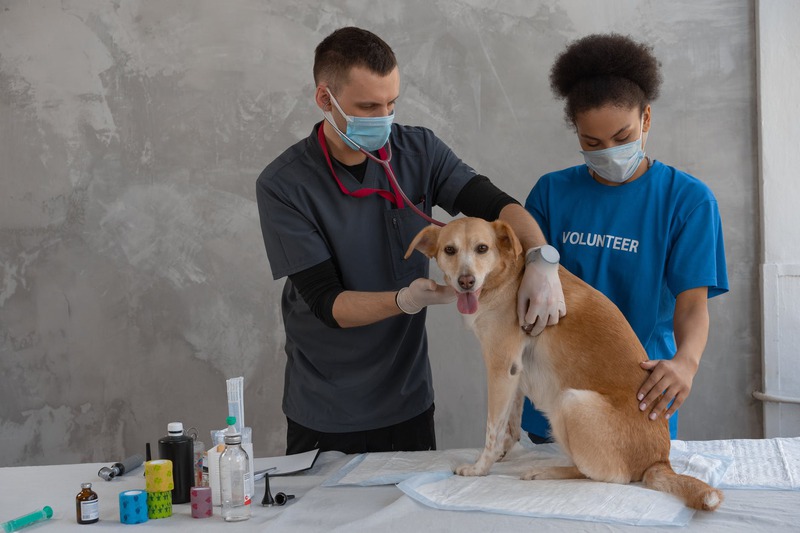As a dog owner, you care about your furry friend’s health and well-being. Did you know that your dog’s diet plays a crucial role in preventing gastrointestinal issues? With expert guidance and some practical tips, changing your dog’s diet can significantly improve their gut health. In this article, we’ll explore numerous tips and tricks to help prevent gastrointestinal problems in your dog with a proper diet and lifestyle.
Understanding gastrointestinal issues in dogs
Gastrointestinal issues in dogs can range from minor problems like occasional bouts of diarrhea to more severe disorders such as inflammatory bowel disease. The common symptoms of gastrointestinal issues include diarrhea, vomiting, gas, bloating, and constipation. Many factors could cause these problems, such as viruses, parasites, food allergies, and poor-quality dog food. By understanding these issues, you can make informed decisions about your pet’s diet and care.
Role of diet in preventing gastrointestinal issues for dogs
Feeding your dog a balanced and nutritious diet can significantly impact their digestive health. The right diet can provide the essential nutrients to maintain a healthy gut and help prevent digestive problems. However, each dog is unique, so it’s essential to tailor your pet’s diet to their individual needs and preferences.
High protein, low-fat diet for dogs
A high-protein, low-fat diet can be highly beneficial for dogs, as it provides the essential amino acids for muscle growth and maintenance without the risk of obesity. Foods such as lean meat, fish, and low-fat dairy products are excellent sources of protein for dogs. Including these in their diet can help prevent gastrointestinal issues by improving digestion and minimizing the risk of food intolerance.
Dog exercise and its impact on digestion
Just like humans, dogs can benefit from regular exercise and physical activity to maintain a healthy digestive system. Activities like walking, playing fetch, and agility training can help your dog burn calories, improve digestion, and prevent gastrointestinal issues.
Stress management for dogs and its relation to digestion
Stress can lead to various digestion problems in dogs, such as stomach upsets and diarrhea. Managing your dog’s stress levels by providing a calm environment, engaging them in playtime, and using calming supplements like chamomile or valerian root can significantly improve their digestive health.
Raw food diet for dogs
Feeding your dog a raw food diet, which includes unprocessed fruits, vegetables, and meats, can also improve digestion and prevent gastrointestinal issues. Not only does it provide essential nutrients, but it also promotes healthy gut bacteria, which can help keep your dog’s digestive system in optimal condition.
Grain-free dog diet
Some dogs experience better digestion when switched to a grain-free diet. This type of diet eliminates the potential allergens and gluten found in grains, which can contribute to gastrointestinal issues for some dogs. High-quality, grain-free dog food options are now widely available and can be beneficial for dogs with gluten sensitivity or food allergies.
Importance of high-quality ingredients in dog food
Low-quality dog food, packed with fillers and artificial ingredients, can lead to various gastrointestinal problems. Look for dog food that contains high-quality, natural ingredients, such as whole meats and vegetables. This can help promote good digestion and prevent gastrointestinal issues.
Animal Hospital: When to Consult a Vet
If you’ve made changes to your dog’s diet and still notice gastrointestinal problems, it’s crucial to consult your veterinarian. Veterinary hospitals like Rockland Veterinary provide expert guidance and comprehensive care for your pet, ensuring that they receive the best treatment possible for their digestive issues.
Veterinary Surgery: When Diet Changes Aren’t Enough
In some cases, your dog may require veterinary surgery to address their gastrointestinal problems. By visiting a reliable online source, such as on rocklandvet.com, you can find valuable information about various surgical procedures and the best course of action for your pet.
Emergency Care: Urgent Assistance for Your Pet
In severe cases where your dog experiences intense gastrointestinal distress or pain, it’s essential to seek urgent care as soon as possible. Emergency care facilities specialize in helping pets during these critical situations and ensuring they receive the appropriate treatment quickly.
Conclusion
Changing your dog’s diet can undoubtedly play a significant role in preventing gastrointestinal issues and improving its overall health. However, it’s essential to consult your vet before making any significant changes to their diet and consider expert tips and tricks when determining the best nutrition plan for your furry friend. By taking a proactive approach to your pet’s diet and care, you can help them live a healthier, happier life.





